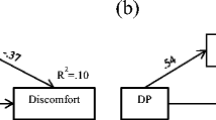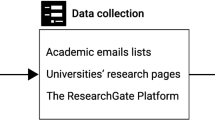Abstract
What does the term academic ethics mean? How does this term relate to others in the academic integrity literature, such as research misconduct? Does conceptual confusion in the study of academic ethics complicate development of valid analyses of ethical behavior in an academic setting? The intended goal of many empirical projects on academic ethics is to draw causal conclusions about the factors that lead to faculty or students possessing or disregarding academic integrity. Yet, it is not clear that scholars using the concept academic ethics are measuring the same phenomenon when they use associated concepts, such as responsible conduct of research. The purpose of this paper is to develop a taxonomy of concepts for the empirical study of academic ethics. Based in research on comparative analysis of democracy, another normatively preferable but multifaceted concept, I argue for a taxonomy of concepts for the study of academic integrity that reduces problems of “conceptual stretching” and challenges to the validity of empirical research in this field.
Similar content being viewed by others
Notes
As noted by an anonymous reviewer, the relationship between universals and specifics, connotations and denotations is outlined in Aristotle’s discussion of categorical sentences in the Prior Analytics. This point of basic logic and conceptualization will not be belabored here.
References
Beauchamp, T. L., & Childress, J. F. (2008). Principles of biomedical ethics (6th ed.). Oxford: Oxford University Press.
Cahn, S. M. (1994). Saints and scamps: Ethics in academia. revised edition. Lanham: Rowman & Littlefield Publishers, Inc.
“Call for Papers.” (2011). Journal of Academic Ethics. http://www.springer.com/cda/content/document/cda_downloaddocument/JAE_CFP_v2_1.pdf?SGWID=0-0-45-1204037-p35536543. Accessed 14 November 2011.
Callahan, D. (1982). Should there be an academic code of ethics? Journal of Higher Education, 53(3), 335–344.
Connolly, W. E. (1974). The terms of political discourse. Lexington: D.C. Heath and Company.
Council of Science Editors Editorial Policy Committee. (2009). CSE’s white paper on promoting integrity in scientific journal publications. http://www.councilscienceeditors.org/i4a/pages/index.cfm?pageid=3361. Accessed 14 November 2011.
Croley, S. P. (1998). Theories of regulation: incorporating the administrative process. Columbia Law Review, 98(1), 1–168.
Crown, D. F., & Spiller, S. (1998). Learning from the literature on collegiate cheating: a review of empirical research. Journal of Business Ethics, 17(6), 683–700.
Gallie, W. B. (1955–56). Essentially contested concepts. Proceedings of the Aristotelian Society, New Series 56, 167–198.
Hamilton, N. W. (2002). Academic ethics: Problems and materials on professional conduct and shared governance. Westport: Praeger Publishers.
Institute of Medicine and National Research Council. (2002). Integrity in scientific research: Creating an environment that promotes responsible conduct. Washington, DC: National Academies Press.
King, G., Keohane, R. O., & Verba, S. (1994). Designing social inquiry: Scientific inference in qualitative research. Princeton: Princeton University Press.
Lowery, D., & Evans, K. G. (2004). The Iron cage of methodology: the vicious circle of means limiting ends limiting means. Administration & Society, 36(3), 306–327.
Macrina, F. L. (2005). Scientific integrity: Texts and cases in responsible conduct of research (3rd ed.). Washington, DC: ASM Press.
May, D.R. & Luth, M.T. (2011). The effectiveness of ethics education: A Quasi-experimental field study. Science and engineering ethics. Article in press.
McCabe, D., & Pavela, G. (2000). Some good news about academic integrity. Change, 32(5), 32–38.
McCabe, D. L., & Pavela, G. (2004). Ten (Updated) principles of academic integrity: how faculty can foster student honesty. Change, 36(3), 10–15.
McCabe, D. L., Trevino, L. K., & Butterfield, K. D. (1999). Academic integrity in honor code and non-honor code environments: a qualitative investigation. Journal of Higher Education, 70(2), 211–234.
McKnight, C. (2003). Medicine as an essentially contested concept. Journal of Medical Ethics, 29(4), 261–262.
National Institutes of Health. (1989). Requirement for programs on the responsible conduct of research in national research service award institutional training programs. In NIH guide for grants and contracts, Volume 18, number 45 (p. 1). December 22, 1989.
National Institutes of Health. (1994). Reminder and update: Requirement for instruction in the responsible conduct of research in national research training grants. In NIH Guide for Grants and Contracts, Volume 23, number 23. June 17, 1994. http://grants1.nih.gov/grants/guide/notice-files/not94-200.html Accessed 14 November 2011.
National Institutes of Health. (2009). Update on the requirement for instruction in the responsible conduct of research. NOT-OD-10-019. Release Date November 24, 2009. http://grants.nih.gov/grants/guide/notice-files/NOT-OD-10-019.html. Accessed 14 November 2011.
Office of Research Integrity. (2009). Definition of research misconduct. Office of research integrity. http://ori.hhs.gov/misconduct/definition_misconduct.shtml. Accessed 14 November 2011.
Pellegrino, E. D. (2008). Character, virtue, and self-interest in the ethics for the professions. In H. T. Engelhardt & F. Jotterand (Eds.), The philosophy of medicine reborn: A Pellegrino reader (pp. 231–254). Notre Dame: Notre Dame University Press.
Pimple, K. D. (2002). Six domains of research ethics: a heuristic framework for the responsible conduct of research. Science and Engineering Ethics, 8(2), 191–205.
Resnik, D. B., & Dinse, G. E. (2012). Do US research institutions meet or exceed federal mandates for instruction in responsible conduct of research? A national survey. Academic Medicine. doi:10.1097/ACM.0b013e318260fe5c.
Russell, W.M.S., & Burch, R.L. (1992 [1959]). The principles of humane experimental technique. Herts, U.K.: Universities Federation for Animal Welfare.
Sartori, G. (1970). Concept misformation in comparative politics. American Political Science Review, 64(4), 1033–1053.
Second World Conference on Research Integrity. (2009). Singapore statement on research integrity. Posted 22 September 2010. http://www.singaporestatement.org/statement.html. Accessed 14 November 2011.
Shamoo, A. E., & Resnik, D. B. (2009). Responsible conduct of research (2nd ed.). Oxford: Oxford University Press.
Simon, R. L. (1994). Academic ethics and the neutral university. Lanham: Rowman & Littlefield Publishers.
Steneck, N. H. (2006). Fostering integrity in research: definitions, current knowledge, and future directions. Science and Engineering Ethics, 12(1), 53–74.
Steneck, N. H. (2007). ORI introduction to the responsible conduct of research. Revised edition. Washington, DC: US Government Printing Office.
Steneck, N. H., & Bulger, R. E. (2007). The history, purpose and future of instruction in the responsible conduct of research. Academic Medicine, 82(9), 829–834.
Vallero, D. A. (2007). Biomedical ethics for engineers: Ethics and decision making in biomedical and biosystem engineering. Burlington: Academic.
Wamsley, G. L. (1996). A public philosophy and ontological disclosure as the basis for normatively grounded theorizing in public administration. In G. L. Wamsley & J. F. Wolf (Eds.), Refounding democratic public administration: Modern paradoxes, postmodern challenges (pp. 351–401). Thousand Oaks: Sage.
Whitbeck, C. (2011). Ethics in engineering practice and research. Cambridge: Cambridge University Press.
Acknowledgments
Redacted for review purposes.
Author information
Authors and Affiliations
Corresponding author
Rights and permissions
About this article
Cite this article
Jordan, S.R. Conceptual Clarification and the Task of Improving Research on Academic Ethics. J Acad Ethics 11, 243–256 (2013). https://doi.org/10.1007/s10805-013-9190-y
Published:
Issue Date:
DOI: https://doi.org/10.1007/s10805-013-9190-y




